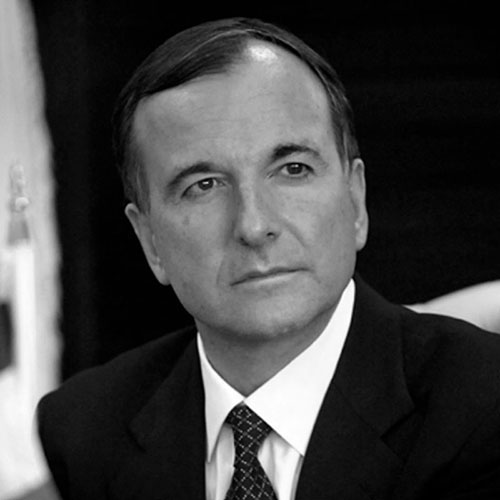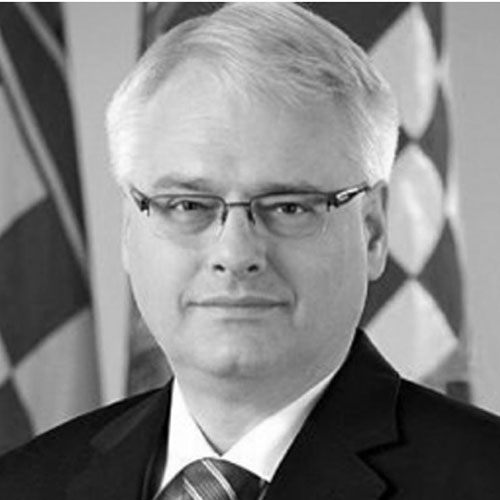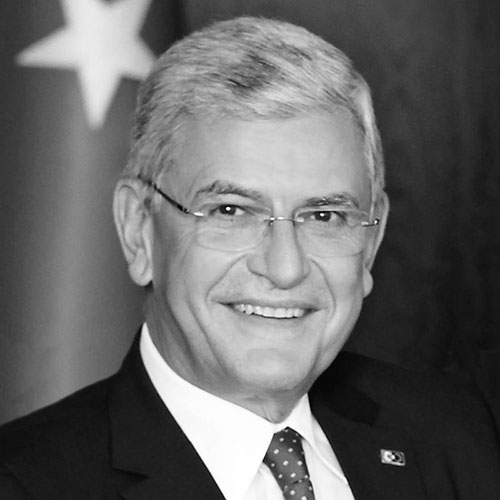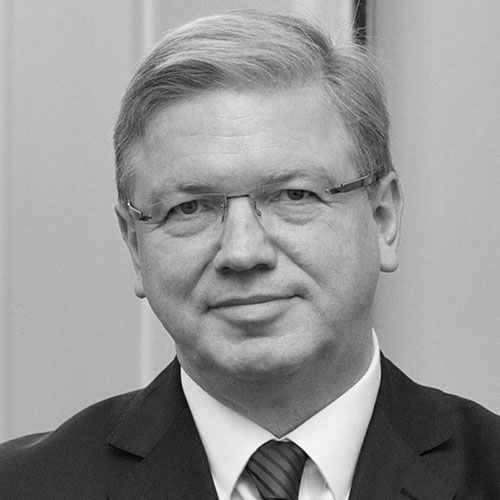The session moderator, David Foster, began the session by asking whether the European Union is a failing project. This was addressed as being particularly salient in light of the shift in attitude of some European governments and their populations towards the EU itself. Brexit, the rise of populism and the increasingly unilateral behaviour of the United States in world affairs has called the future of the EU into question. The rise of populism being witnessed today mirrors that of the inter-war years, and the subsequent rise of fascism in the lead up to the Second World War. Reflecting on these and other issues, David Foster inquired into whether these were signs of the failure of the European project and whether emerging threats to the continued stability and integrity of the EU could be feasibly addressed.
Commenting on the positive role the EU played in the post-conflict Balkans, Ivo Josipovic, Former President of Croatia, stated that Europe is first and foremost a peace project and that joining the EU contributed to significant improvements in Croatian society. The European Union also had a role in pressuring Croatia and other countries to commit to the ICTY and in holding to account those implicated in war crimes. This is in addition to aiding in the creation of legislation designed to help integrate the Serb minority in Croatia and ensure their participation in social, civil and political life. He concluded by stating that there is a need to work on the notion of European identity because Europe lacks such a collective understanding of itself. As part of the discussion, the need for new political structures to address issue such as the development of common foreign policy and the evaluation of EU membership were deliberated upon. This includes developing structures and institutions to facilitate the inclusion of all EU member states in the decision making process.
Volkan Bozkır, chairman of foreign relations committee at the Turkish Grand National Assembly, explained – regarding Turkey’s status in EU accession talks – that joining the EU is not like joining the UN or NATO; it necessitates a change of outlook and approach. He discussed the perspective of how EU membership has been shown to improve the everyday life of people, this being, in his view, the primary reason Turkey is still committed to accession process. In the context of Turkish-EU relations, he discussed the results achieved by the substantial cooperation between Turkey and EU regarding the refugee crisis.
Addressing the Euro-skeptical position, former Minister of Foreign Affairs of Italy, Franco Frattini, commented that it would be a mistake to take for granted all the important gains Europe has achieved since the formation of the EU. He gave the examples of mobility and security cooperation as being two of the most important. Deliberating on the rise of populism and the far right, Frattini commented that the recent election of a populist right-winged government in Italy reflects the fact that there is an increasing gap between EU administrators in Brussels and the average voter in many EU member-states. That the perception exists that EU policies do not take into enough consideration national and local priorities represents a fundamental threat to the continued success of the European project. Issues such as immigration and austerity were discussed in this context.
Former European Commissioner for Enlargement, Stefan Füle, iterated that prosperity is the ultimate guarantor of European stability. So long as there is continued growth and prosperity, the average citizen of an EU-member state would not concern themselves with administrative affairs in Brussels. However, when crises erupt, a crisis management deficit in the EU amplifies issues that sow skepticism and division. He added that politicians need to differentiate between national and supranational problems, and member states need to take into consideration their neighbors interests when seeking to solve their own problems.




